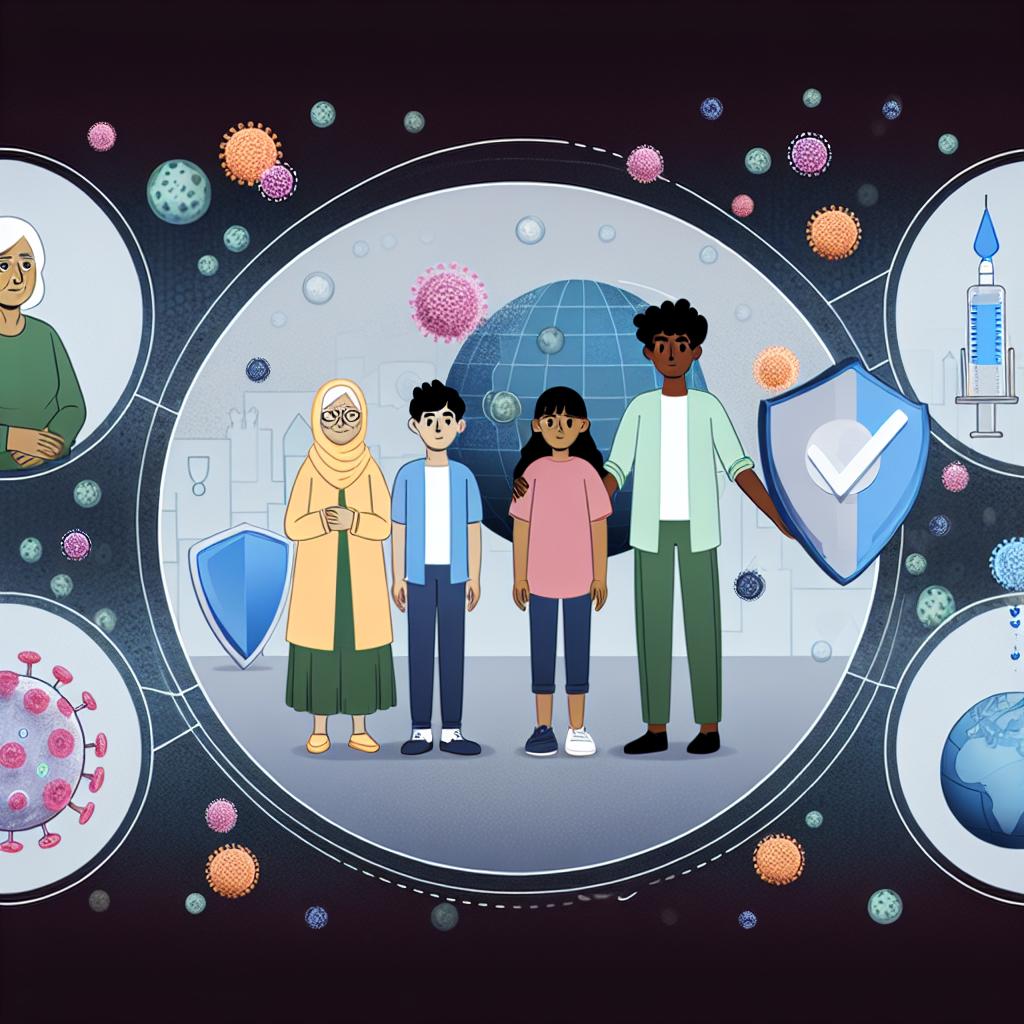
The importance of vaccines in preventing diseases.
The Role of Vaccines in Disease Prevention
Vaccines have long been a cornerstone of public health efforts due to their crucial role in drastically reducing the incidence of numerous infectious diseases. By stimulating the body’s immune response to recognize and counteract pathogens like viruses and bacteria, vaccines offer protection without causing the actual disease. The use of vaccines has proven to be a remarkably effective method in the control of infectious diseases.
How Vaccines Work
Vaccines function by incorporating components of specific pathogens that elicit an immune response without causing the disease. These components, known as antigens, teach the immune system to promptly and effectively respond to future exposures to the disease-causing organisms. The critical development of immunological memory ensures that the immune system can react swiftly to subsequent infections, thus prolonging the vaccine’s effectiveness.
Types of Vaccines
Various types of vaccines have been developed, each designed to protect against specific pathogens. Understanding these differences is important:
Live-attenuated vaccines: These vaccines incorporate a version of the living microbe that has been weakened to the extent that it cannot cause disease. Such vaccines usually elicit strong cellular and antibody responses, providing robust immunity.
Inactivated vaccines: Made from proteins or small fragments derived from viruses or bacteria, these vaccines do not include live pathogens, thus they cannot cause disease. They are often used when a strong immune response is needed without the risk of causing actual infections.
Subunit, recombinant, or conjugate vaccines: These vaccines focus on using only essential antigens rather than incorporating the entire pathogen. This selective approach targets specific parts of the germ that provoke the immune response.
mRNA vaccines: Representing newer advancements in vaccine technology, mRNA vaccines employ a copy of a natural messenger chemical from the virus to produce an immune response. They offer a novel and effective means of vaccination.
Benefits of Vaccination
The advantages of vaccination extend far beyond individual protection, impacting public health on a broader scale. Key benefits include:
The primary benefit of vaccination is the direct protection it affords: vaccinated individuals are less likely to contract specific diseases, thanks to their primed immune systems. Building on this, vaccination contributes to herd immunity. This occurs when a sufficiently large proportion of a community is immunized, providing indirect protection to unvaccinated individuals by limiting the overall spread of the disease.
Vaccination further offers substantial economic benefits by decreasing the frequency and severity of disease outbreaks, thus reducing the associated healthcare costs. Treating widespread infectious diseases can be highly expensive, but with a reduced burden thanks to vaccination, substantial financial resources can be saved.
The Impact of Vaccines on Global Health
Vaccines have produced significant positive effects on global health, contributing to the substantial reduction and, in certain cases, the elimination of diseases that were once prevalent and life-threatening. A compelling example of this impact is the global eradication of smallpox, which was officially declared eradicated in 1980 following a worldwide vaccination campaign. Similarly, polio stands on the brink of eradication owing to extensive vaccine dissemination efforts.
Modern vaccines continue to play a crucial role in global health strategies, focusing on the control and prevention of diseases. With the backing of organizations such as the World Health Organization (WHO), vaccination programs have significantly improved the accessibility of vaccines in low-income regions, drastically reducing the incidence and devastating impacts of numerous diseases worldwide.
Beyond individual and community health, vaccination initiatives have broader implications for global peace and stability. By controlling infectious diseases, reducing mortality rates, and promoting healthy populations, vaccines contribute to societal well-being and prosperity. Many global health challenges have been addressed effectively through successful vaccination campaigns, paving the way for improved health outcomes and economic development in affected regions.
As medical science progresses, so too does our understanding and technology regarding vaccines. Continued research and development hold the potential to advance vaccine technology further, improving existing vaccines and creating new ones to combat emerging infectious threats. Innovations, such as mRNA technology, have already revolutionized the way we approach vaccination and hold promise for addressing a wide array of diseases in the future.
In conclusion, vaccines are indispensable in the ongoing battle against infectious diseases. By providing direct protection to vaccinated individuals and bolstering public health through herd immunity, they represent a critical component of global health initiatives. As research progresses, vaccine technology is poised to offer even greater benefits, safeguarding future generations from the ravages of infectious diseases. The continued commitment to vaccine research, development, and accessibility remains a vital priority in the pursuit of worldwide health and well-being.
